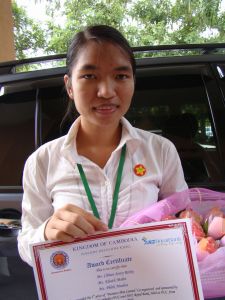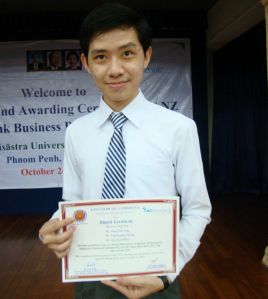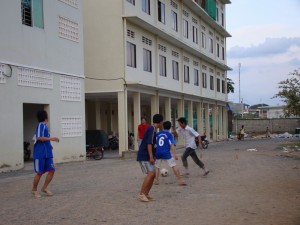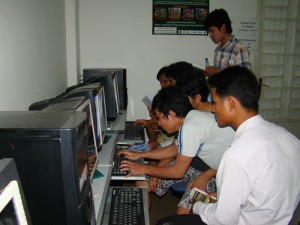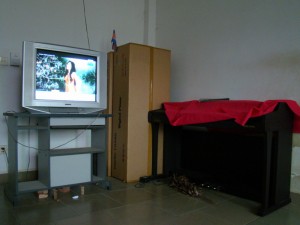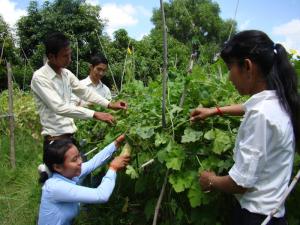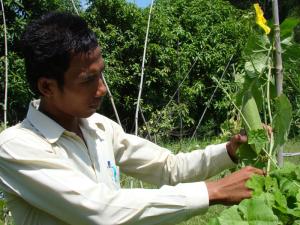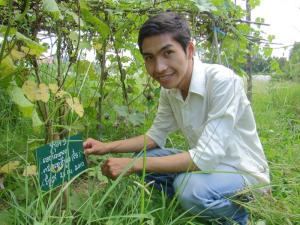Audio books
To the more literary among us, it’s a problem that arises constantly during our waking hours. It’s time for you to go to school or finish your chores around the house, but you are in the middle of an amazing book and you just can’t stand to put it down. Now you can relax, letter-loving friends. It’s possible to stay stuck in a book while fulfilling your duties away from the page. Audio books might take a little getting used to, but, after a few listens you will be locked in. You will still have to deal with situations not conducive to continuing your bookish journey, but it will happen less often. My favourite sites for downloading audio books are http://h33t.com and http://www.mininova.org.
Blogging
How many of you have your own blog? Chances are there will be a lot more of you once the word spreads through 5 cool things. That’s a good thing, since blogs are an awesome way to develop your writing and thinking skills, while making friends and expanding your exposure to people, news and events around the world. You don’t have to be a computer whiz to start a blog. In fact, once you set it up the only thing you really need to know how to do is type. Even my 95-year-old grandmother has a blog. That’s not true, however, it would illustrate how simple blogging can be. From now on, put your ideas online and let other people help you make them better.
Daily planner
What time do to you wake up and go to school? What do you do when you get home? What time do you go to bed? There are an infinite number of questions that you must answer throughout the day and you probably make most of them without much thought or consideration of how to best organise your time. Living a reactionary life might seem like the best path, but when you plan your day before it begins you can be sure not to forget things that tend to slip your mind. The only part of my day that I don’t plan in advance is grabbing my scheduler in the morning to map out the day ahead.
Voice recorder
If you are anything like me, you and your computer have a pretty special relationship. Take it to a new level by making use of your computer’s ability to talk with you or, more specifically, to talk like you. Any fairly new computer has a built-in sound recorder and accompanying software that allows you to record your voice, play it back and possibly edit it as well. If your computer doesn’t have a built-in mic you can buy an external microphone or, better yet, a pair of headphones with a microphone attached. Once everything is set up you can use the simple but versatile technology for a bunch of different things. I usually use it to listen to my pronunciation and improve my spoken English. So ditch your outdated tape recorder and make the most of your computer’s capabilities.
Swimming
I have long been a fan of trips to the sea for a weekend of frolicking by the ocean, swimming, however, has recently been climbing up my list of favourite pastimes in the city. Aquatic exercising has countless benefits for your health and body, but it is also enjoyable, a rare combination as far as workouts go. You can ramp up the fun and hang out poolside with your friends. But I have observed that each person you add to a swimming outing inevitably leads to a drop in the likelihood you will actually work out. With some exercises you feel sore and strained the next day, but after a couple of weeks swimming you will feel refreshed. The more time you spend in the water the better you will feel. So next time you are hot and bothered, sort yourself out with a swim.
by: Dara Saoyuth This article was published on Lift, Issue 44 published on November 10, 2010






